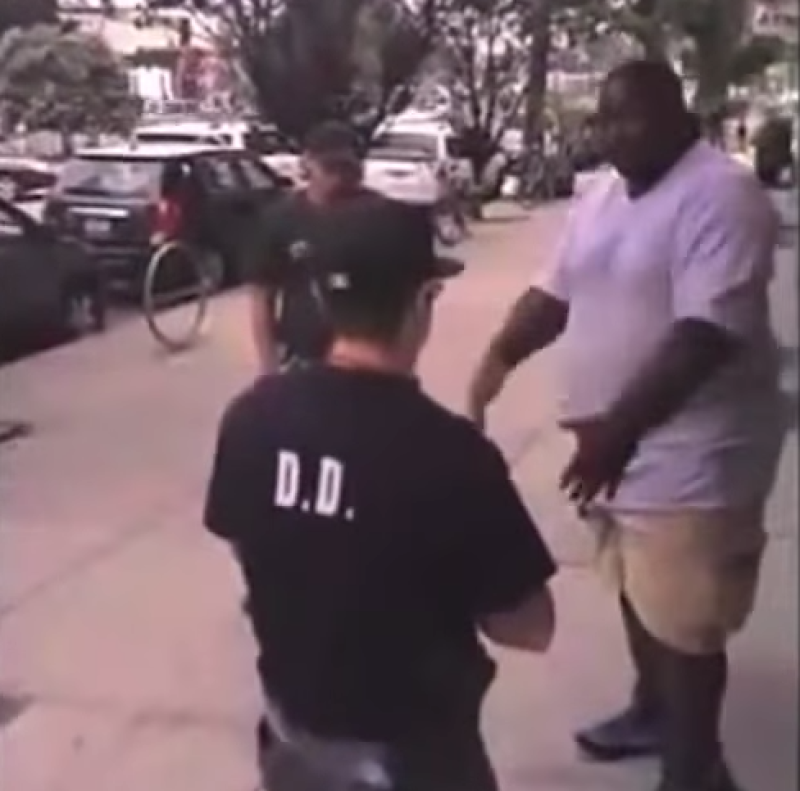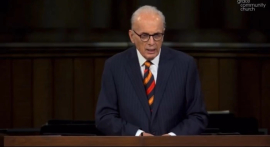

Eric Garner verbally resisted arrest before being put in a submission hold that resulted in his death.
Allegations of injustice and racism are aimed at local authorities all over the United States in light of the two deaths of African American males. Despite the anger and allegations towards him, Officer Daniel Pantaleo was not indicted by the Grand Jury for the death of Eric Garner on Wednesday.
In a video depicting the death of Garner, Officer Pantaleo can be seen placing a submission hold maneuver on Garner. The officer initiates the hold after Garner vocally resists arrest several times for illegally selling untaxed cigarettes. After Pantaleo initiates the hold, other officers enter the scene and assist Pantaleo by grabbing Garner as he falls to the ground. Pantaleo sustains the hold after Garner hits the ground and then pushes Garner's face to the ground. During the struggle, Garner does not physically resist, but says "I can't breathe." The bystanders in the video do not immediately react to Garner's complaints; they do not seem to see an immediate threat to Garner's life.
Garner's death occurred back in July and an autopsy was released on August 1.
The autopsy report declared that Officer Pantaleo's actions lead to the death of Garner, whose obesity, asthma, and heart failure were triggered by the hold. The death was ruled as homicide: Pantaleo's actions (regardless of intent), lead to the death of Garner. Pantaleo's hold, deemed by many as a "choke hold," compressed Garner's throat and chest.
According to an article by the New York Times, Garner's friends said that he suffered from "diabetes, sleep apnea, and asthma so severe that he had to quit his job as a horticulturist for the city's parks department."
"He wheezed when he talked and could not walk a block without resting," they said.
Widespread animosity ensued as the Grand Jury decided not to indict the officer after the death was ruled as homicide. Homicide, however, is not as precise a term as many believe. Time reported that there are five labels for cause of death: homicide, accident, suicide, natural, and undetermined.
Homicide, according to Gregory G. Davis, president of the National Association for Medical Examiners, is when "someone's intentional actions led to the death of another person."
According to legal experts, the officer's intent upon subduing Garner weighs heavily on the Grand Jury's decision. Pantaleo's culpability, in regards to the charges, is dependent on intent.
Zachary Johnson, a criminal defense attorney in Manhattan, told USA Today that in such cases as this, "Intent is everything."
"Mistakes by police officers get them fired. It's only willful or harmful intent that gets them charged. The big issue here is not so much what happened. The big issue is what was going on in the officer's mind," said Johnson.
"If you can't prove that mental state, that guilty mind, that mens rea -- as they call it in Latin, then you don't have a criminal case,"


















